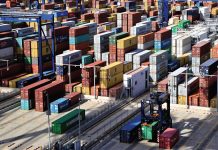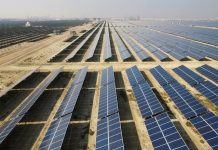ISLAMABAD: Pakistan needs to undergo an intellectual and knowledge revolution in order to boost the economy and compete with the changes that are taking place globally in the economic sphere, experts said.
Professor Dr Usman Mustafa, Director at Pakistan Institute of Development Economics (PIDE), said while talking to WealthPK that knowledge is the key to the growth and development.
“Historically, only those countries succeeded and advanced that based their economies on knowledge. Research and development (R&D) is a prerequisite for a knowledge-based economy,” he underlined.
Prof Usman cited the examples of Ghana and South Korea that had almost the same income per capita nearly 40 years ago.
“By the early 1990s, South Korea’s income per capita was six times higher than Ghana’s. Some reckon that half of the difference was due to Korea’s greater success in acquiring and using knowledge,” he said.
While explaining the era of knowledge-based development and growth, he stated that initially the economy revolved around agriculture, however, after the industrial revolution, wealth became associated with manufacturing and commerce. He said that in the current era, wealth is linked with the “ownership of knowledge” needed to produce goods and services.
Prof Usman said the four pillars of the knowledge economy which are education and training, information infrastructure, innovation systems, economic incentives, and institutional regime. He said that the power of knowledge is nothing until it is applied.
“It plays the predominant part in producing wealth. Therefore, there is a need to strengthen all pillars of a knowledge-based economy for Pakistan in order to be a part of global competitiveness,” he said.
Dr Asad Zaman, Vice Chancellor PIDE, said higher education institutions contribute to prosperity and progress, which then leads to a knowledge-based economy.
“The economic rise of a region is closely tied to the rise of its research universities, which act as repositories of knowledge and provide a focal point for creating knowledge-based economies. Despite so much importance of education, the state of education in Pakistan doesn’t portray a satisfactory outlook. The challenge for Pakistan is to convert raw talent and exposure into well-trained knowledge job creators,” he said.
“The first and foremost challenge to a knowledge-based economy is that we have to change the paradigm of education from memorisation towards developing creativity, innovation, critical thinking, and problem-solving skills,” he emphasised.
Dr Asad pointed out that in the current era, students all across the world are more focused on getting their degrees and passing their exams without a specific objective in mind. As a result, he said, the concept of acquiring information in order to bring transformation is lost. He said Pakistan needs an intellectual revolution to boost the economy and to compete with the changing global economic trends.
Federal Minister for Planning, Development, and Special Initiatives Ahsan Iqbal said the government is working hard to lay a strong foundation of knowledge economy. He said the seven pillars focused in Vision 2025 include turning the universities into centres of excellence in instruction, research and innovation, strong academia-industry linkages, community engagement, technology enablement of universities, corporate governance of higher education institutions, and producing quality products.






